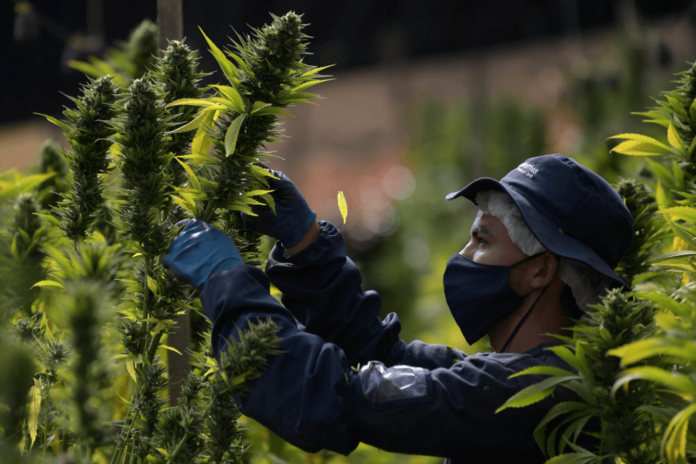Amidst a shifting landscape of marijuana legalization across the United States, federally subsidized tenants continue to face eviction for cannabis use—even in states where it’s legal. This stark contrast between state and federal regulations not only highlights a critical gap in drug policy but also underscores a broader issue of social and racial injustice.
Despite the legalization of recreational marijuana in 24 states, federal laws remain unchanged, maintaining a ban on the plant. This federal prohibition has particularly severe implications for residents in federally subsidized housing, such as those in Section 8 or public housing. These individuals can be evicted or denied housing for possessing, using, or even dispensing marijuana, creating a disparity between them and their non-subsidized neighbors who may freely enjoy its benefits.
The heart of the issue is not just about recreational or medicinal marijuana use; it’s about equity and justice. Historical drug laws have disproportionately targeted Black and Brown communities, and the ongoing federal restrictions perpetuate this systemic inequity. It’s a painful irony that while some benefit from the burgeoning legal cannabis industry, low-income tenants—often from the same communities historically punished by drug laws—are still vulnerable to eviction and criminalization.
Recognizing this injustice, Senator Cory Booker (D-New Jersey) and Representative Eleanor Holmes Norton (D-D.C.) reintroduced the Marijuana in Federally Assisted Housing Parity Act earlier this year. This bill aims to allow residents of federally subsidized housing in states where marijuana is legal to use the substance without fear of losing their homes. While similar legislation stalled in 2019, the ongoing push highlights a growing awareness of the need for reform.
The legal contradiction has real-world impacts. For decades, residents of federally subsidized housing have been subjected to targeted marijuana-related arrests and evictions, especially in communities of color and low-income neighborhoods. New York City, for example, has seen a disproportionate number of marijuana arrests in areas with public housing, leading to higher incarceration rates and a cycle of poverty and criminalization that is difficult to escape.
The ramifications extend beyond individual arrests. Landmark cases like Department of Housing and Urban Development v. Rucker have upheld the rights of public housing authorities to evict entire households for drug-related criminal activity detected among any family members, compounding the fear and instability faced by vulnerable communities.
Yet, there is a glimmer of hope. The proposed legislation by Norton and Booker could finally break this cycle, offering protection and stability to millions of Americans. It reflects a growing recognition that access to housing should not be contingent upon compliance with outdated federal drug policies, especially when those policies disproportionately affect marginalized communities.
Moreover, as the conversation around cannabis legalization evolves, it’s crucial to remember the individuals and families who have been caught in the crossfire of conflicting state and federal laws. Stories of tenants forced to choose between medical relief and eviction, or between family bonds and housing security, illustrate the human cost of these policies.
The push for change is about more than just marijuana; it’s about rectifying historical injustices and reshaping policies that have long been used as tools of oppression. It’s about ensuring that reforms in drug policy translate to tangible improvements in the lives of all citizens, particularly those who have borne the brunt of America’s war on drugs.
As we move forward, it’s essential that any discussion on drug legalization includes a robust plan to protect those in federally subsidized housing—not only to prevent evictions but to support a broader agenda of fairness and equity in our communities. The Marijuana in Federally Assisted Housing Parity Act is a crucial step in that direction, aiming to harmonize state and federal laws and, ultimately, to ensure that the benefits of marijuana legalization are shared equitably across all sectors of society.



